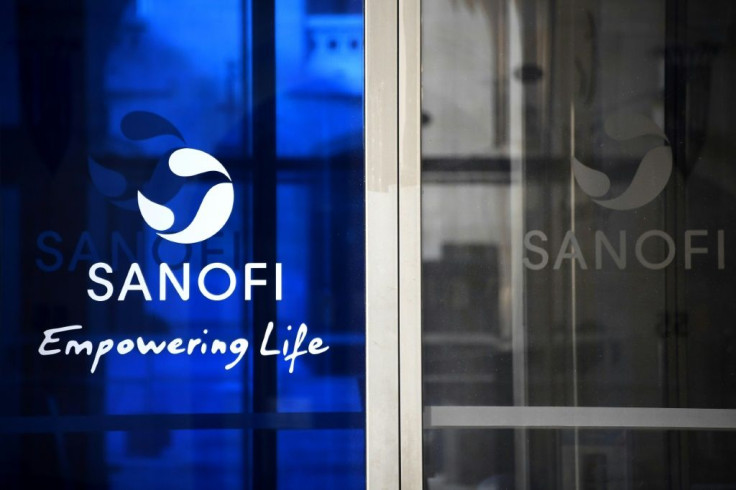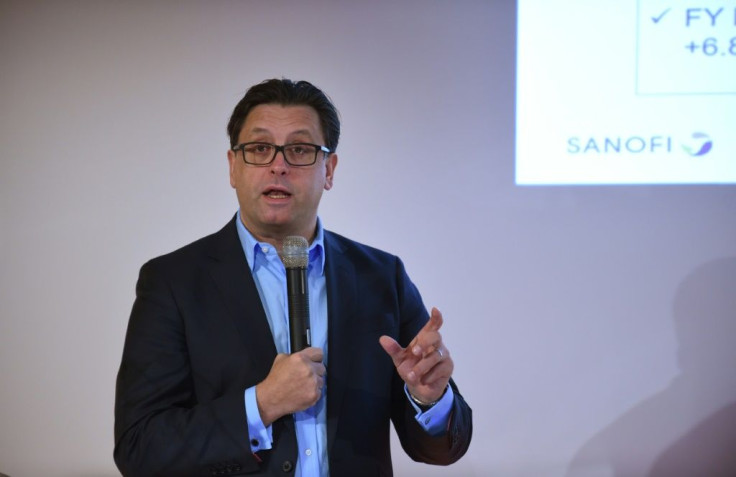France Cries Foul As Sanofi Says US To Get Virus Vaccine First
The French government rounded on homegrown pharmaceutical giant Sanofi on Thursday after its CEO said a potential COVID-19 vaccine would go to the United States first.
The statement unleashed a torrent of indignation over equitable access to protection against a disease that has killed nearly 300,000 people worldwide.
President Emmanuel Macron's office said it would hold talks with Sanofi executives at the Elysee Palace early next week, insisting that any vaccine be treated as "a global public good, which is not submitted to market forces".
Sanofi's chief executive Paul Hudson announced late Wednesday that people in the United States would have priority because their government was helping to fund the company's quest for a coronavirus vaccine.
"The US government has the right to the largest pre-order because it's invested in taking the risk," Hudson, a British citizen who took over as CEO last year, told Bloomberg News.
On Thursday, he told the Financial Times the United States has a risk-sharing model that allows for manufacturing to start even before a vaccine has been finally approved, while Europe does not.

The US health department's Biomedical Advanced Research and Development Authority (BARDA) "work with you on sort of manufacturing at risk much earlier. When it's hundreds of millions of doses, that's a risk that we need to share".
He pointed to a European plan to raise money for vaccine development, saying it was now the time for a "vehicle to make sure we can support that capacity in manufacturing in Europe and the rest of the world".
Officials and health experts pointed to tens of millions of euros Sanofi has received in research credits from the French state.
"Equal access to this vaccine for all is not negotiable," Prime Minister Edouard Philippe said on Twitter.
"For us, it would be unacceptable for there to be privileged access to such and such a country for financial reasons," added deputy finance minister Agnes Pannier-Runacher on Sud Radio.
NGOs accused Sanofi of trying to blackmail France and fuelling a race among major powers for an immunising shot at the expense of poorer nations.

"This shows the need to urgently set global rules on these future treatments that will guarantee that tests and treatments will not be patented, and be distributed fairly to all countries," said Oxfam France, which called Sanofi's plan "quite simply scandalous".
Critics noted that Hudson's veiled threat came just weeks after Sanofi announced a dividend payout of nearly four billion euros ($4.3 billion) despite net profit slumping 35 percent last year to 2.8 billion euros.
Some 140 former and current world leaders and health experts called in an open letter Thursday for any vaccine to be made available "for all people, in all countries, free of charge".
"Now is not the time to allow the interests of the wealthiest corporations and governments to be placed before the universal need to save lives," the signatories said ahead of the World Health Organization's annual meeting next week.
Sanofi's chief in France, Olivier Bogillot, tried to play down his boss's comments, saying "the goal is to have this vaccine available to the US as well as France and Europe at the same time".
But that would only be possible "if Europeans work as quickly as the Americans," Bogillot told BFM television, saying the US government had pledged "several hundreds of millions of euros".
In April, Sanofi joined forces with Britain's GlaxoSmithKline to work on a coronavirus vaccine, though trials have not yet started and the shot would be available toward the end of next year at the earliest.
The project is funded in part by BARDA.
It is one of dozens of vaccine searches underway to combat the COVID-19 outbreak that originated in China last December.
This month, the European Union spearheaded a global effort to raise about $8 billion for research on coronavirus vaccines, treatment and testing, but Washington has pointedly refused to participate.
US President Donald Trump tweeted on Thursday: "Vaccine work is looking VERY promising, before end of year," a prediction that few health experts consider likely to be realised.
© Copyright AFP 2024. All rights reserved.





















